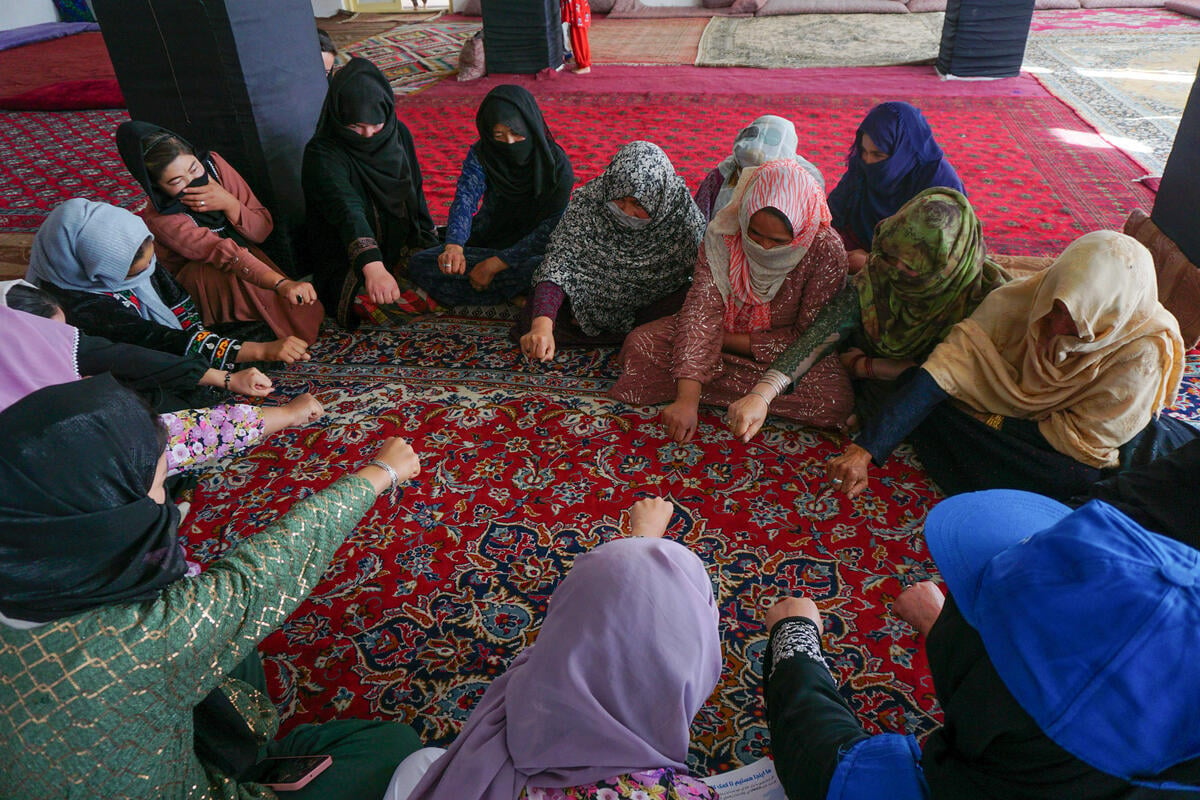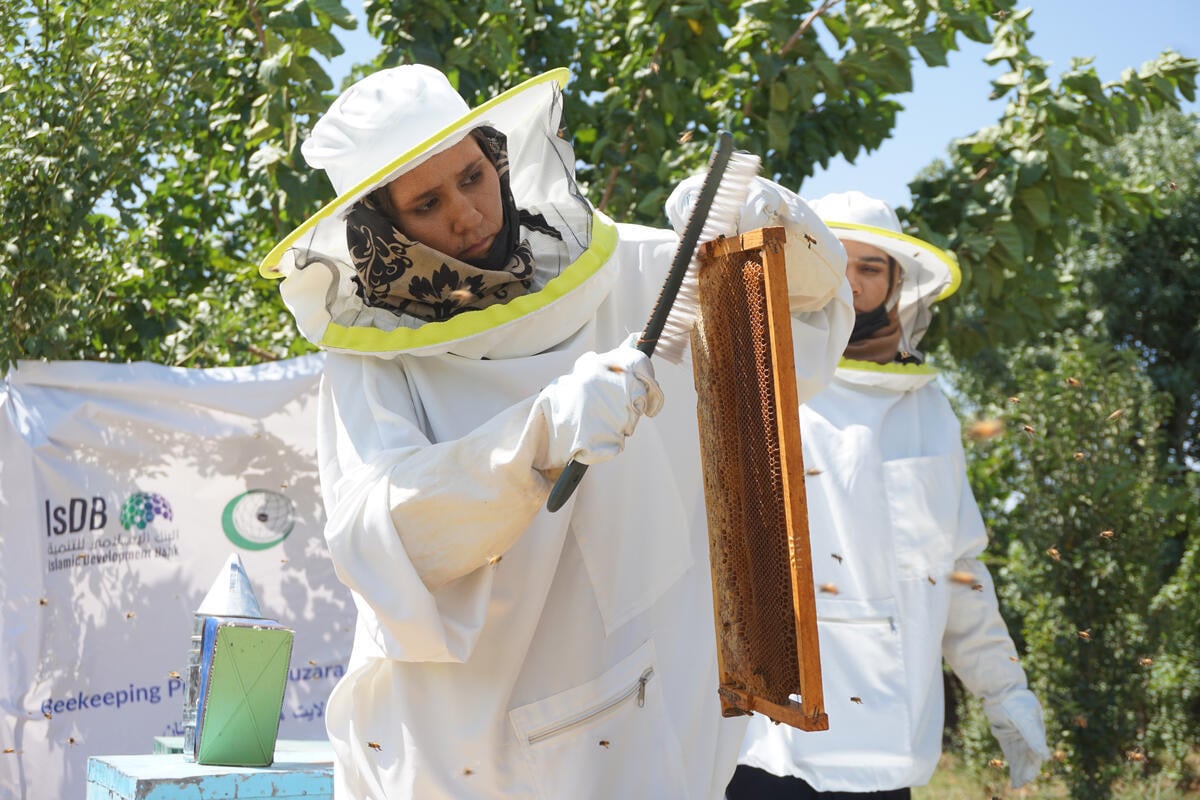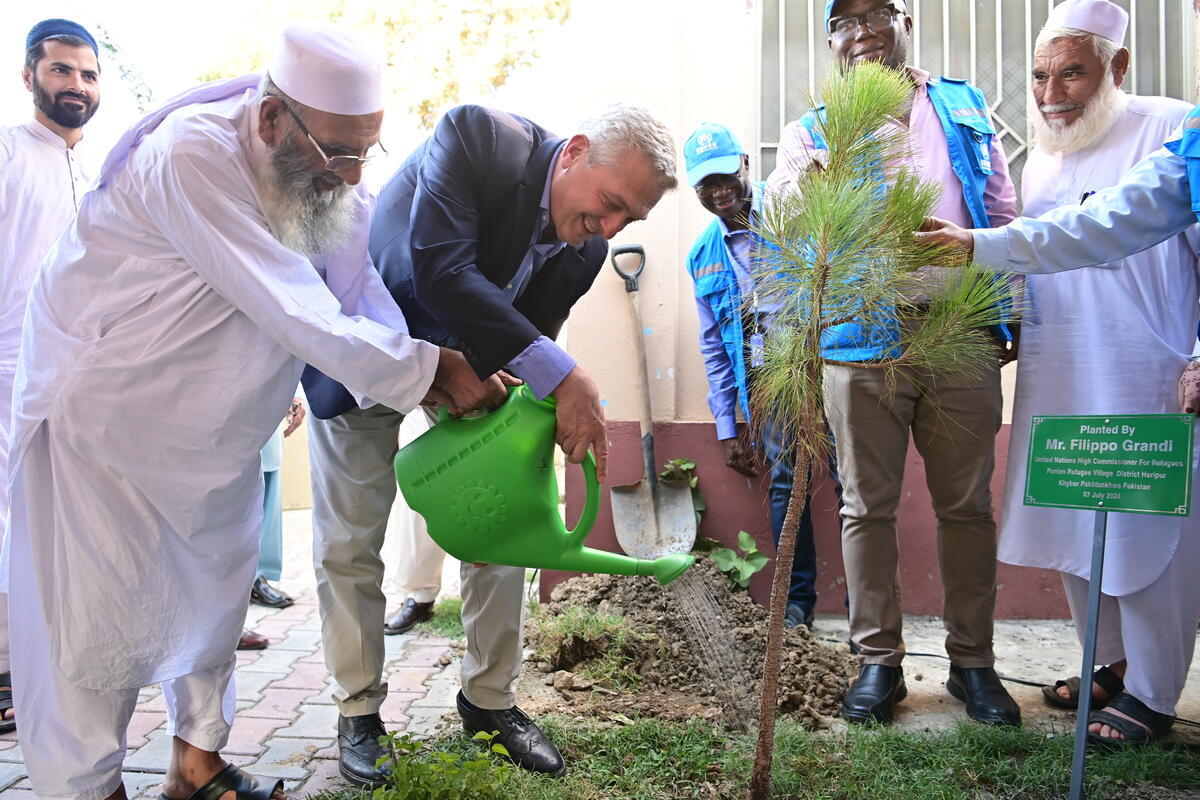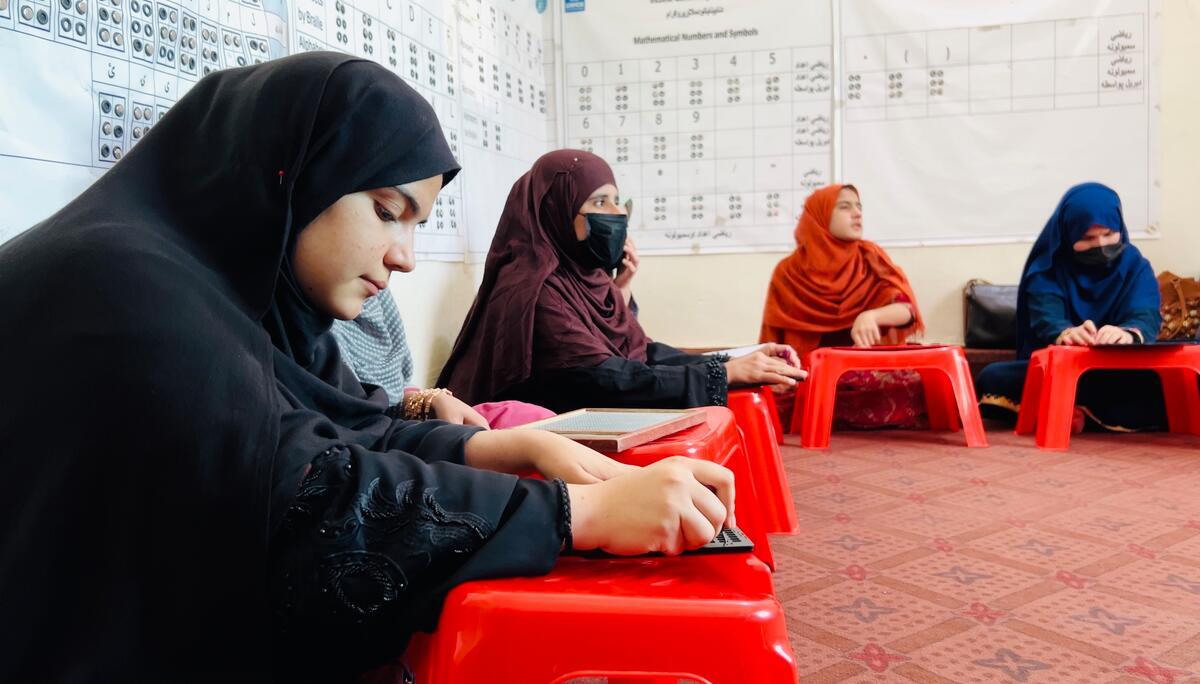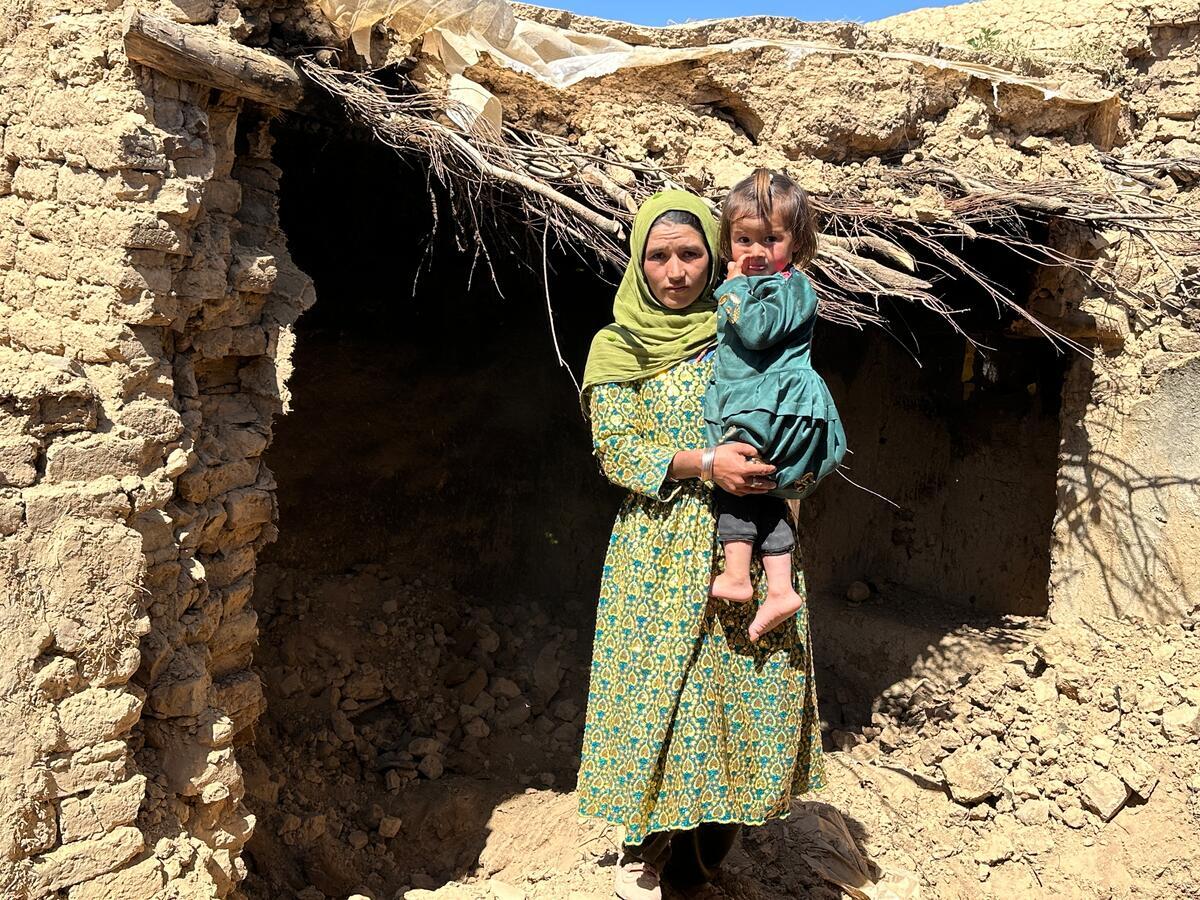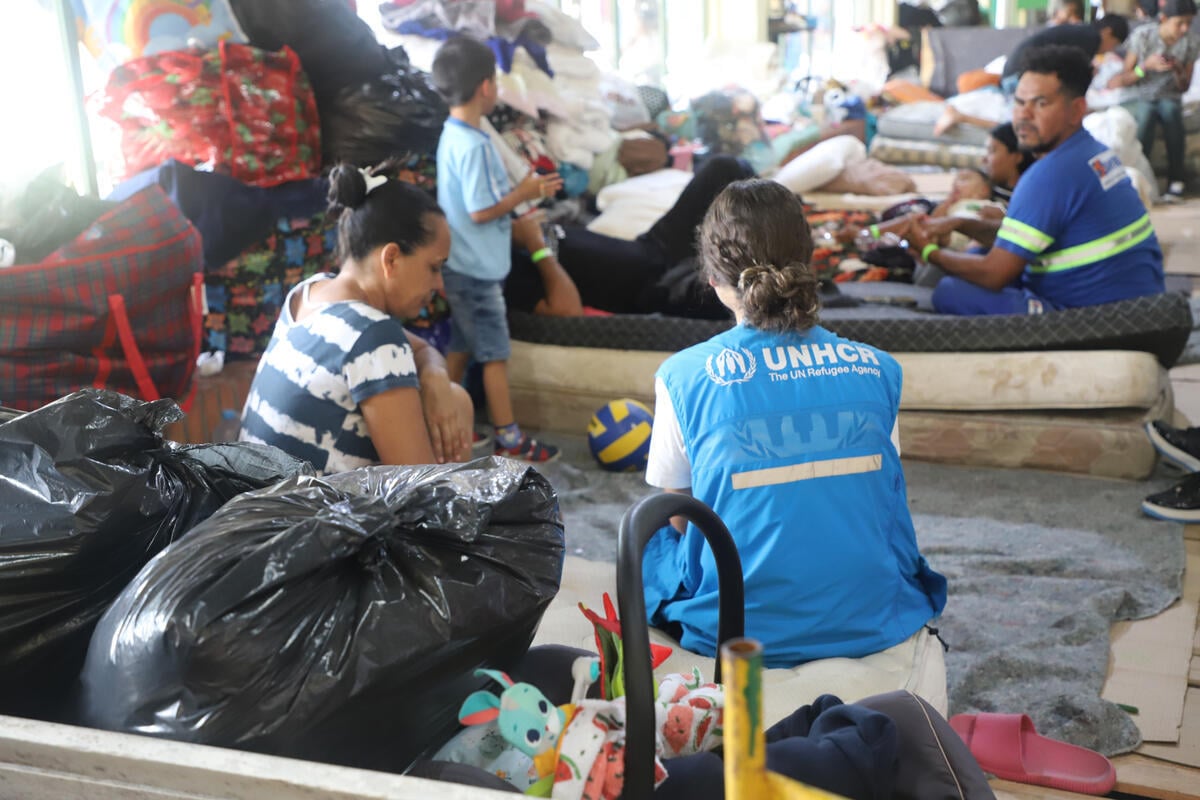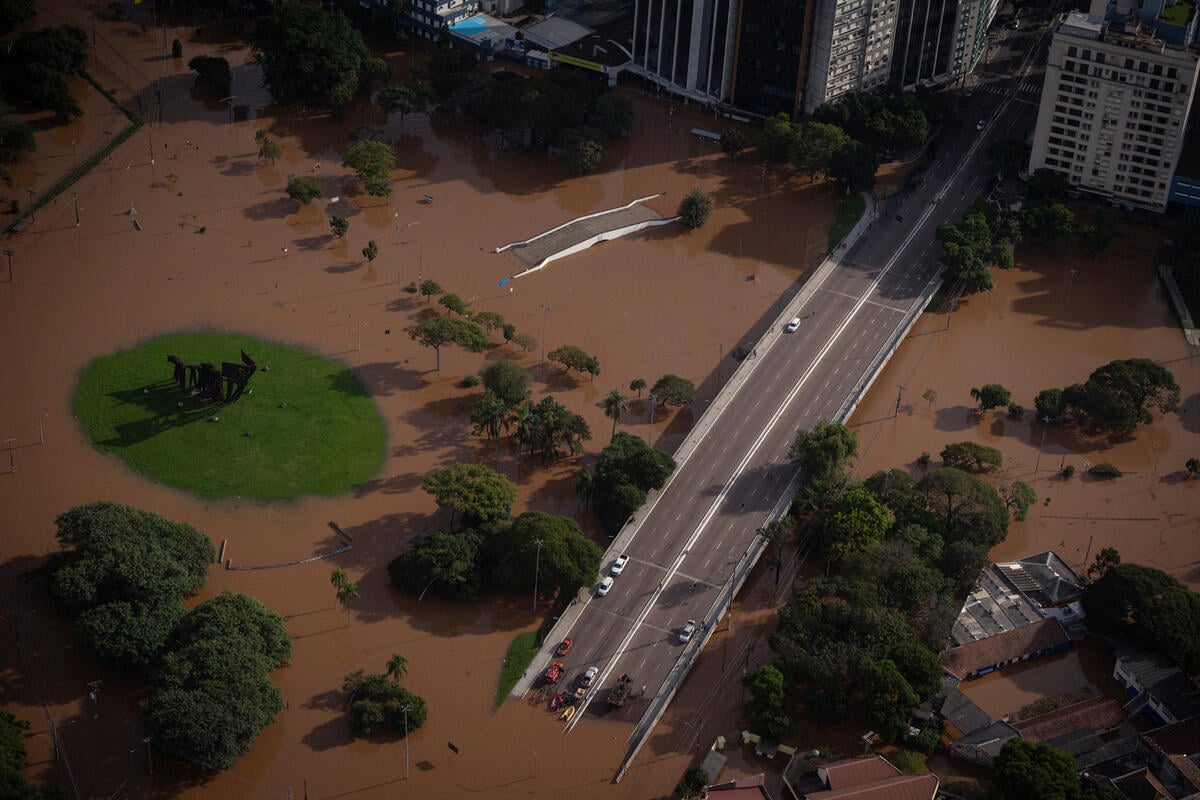Afghanistan: New technology solution brings big savings
Afghanistan: New technology solution brings big savings
Of the 250,000 Afghan refugees who have gone back from Pakistan this year, more than half have undergone a pioneering iris recognition test at one of our three verification centres located in Pakistan's border regions. We opted to use this biometric recognition system in order to prevent identification fraud.
The system was successfully tested late last year in Peshawar, in Pakistan's North West Frontier Province.
More than 130,000 refugees have so far undergone the iris test without complaint. The iris verification process uses state-of-the-art technology and is non-intrusive. Potential returnees are asked to look through a small hole while a camera captures a close-up of their iris. Each photographed iris is saved as an image, not as a name, to simplify the process and protect the privacy of returnees. The image is then added to a computer database that is shared among the three iris validation centres. UNHCR staff are alerted every time someone tries to go through the process again.
In view of cultural sensitivities that do not allow Afghan women to unveil themselves in front of men, UNHCR has hired women operators to process the refugee women and children.
We recently expanded use of the iris test in Pakistan to all refugees aged six and above from the previous threshold of 12 years, as our staff had noticed that some children passing through the centres looked familiar. It was believed that some wily Afghans might be "recycling" older kids through the verification centres in order to collect their assistance package more than once.
All Afghans repatriating under the joint UNHCR/Afghan government facilitated return programme receive between $5 and $30 to cover transport costs, plus they get kits containing blankets, shelter materials, hygienic supplies and other items along with several months of WFP [World Food Programme] food aid. Preventing identity fraud has saved UN agencies millions of dollars.
Of the quarter million returnees from Pakistan so far this year, some 600 were identified by the iris recognition technology as having gone back previously.
Total returns to Afghanistan this year are more than 380,000 including the returnees from Pakistan, and some 130,000 from Iran which include 80,000 with UN assistance and some 50,000 spontaneous returnees. There are some 2.3 million Afghan refugees in the two main asylum countries.

